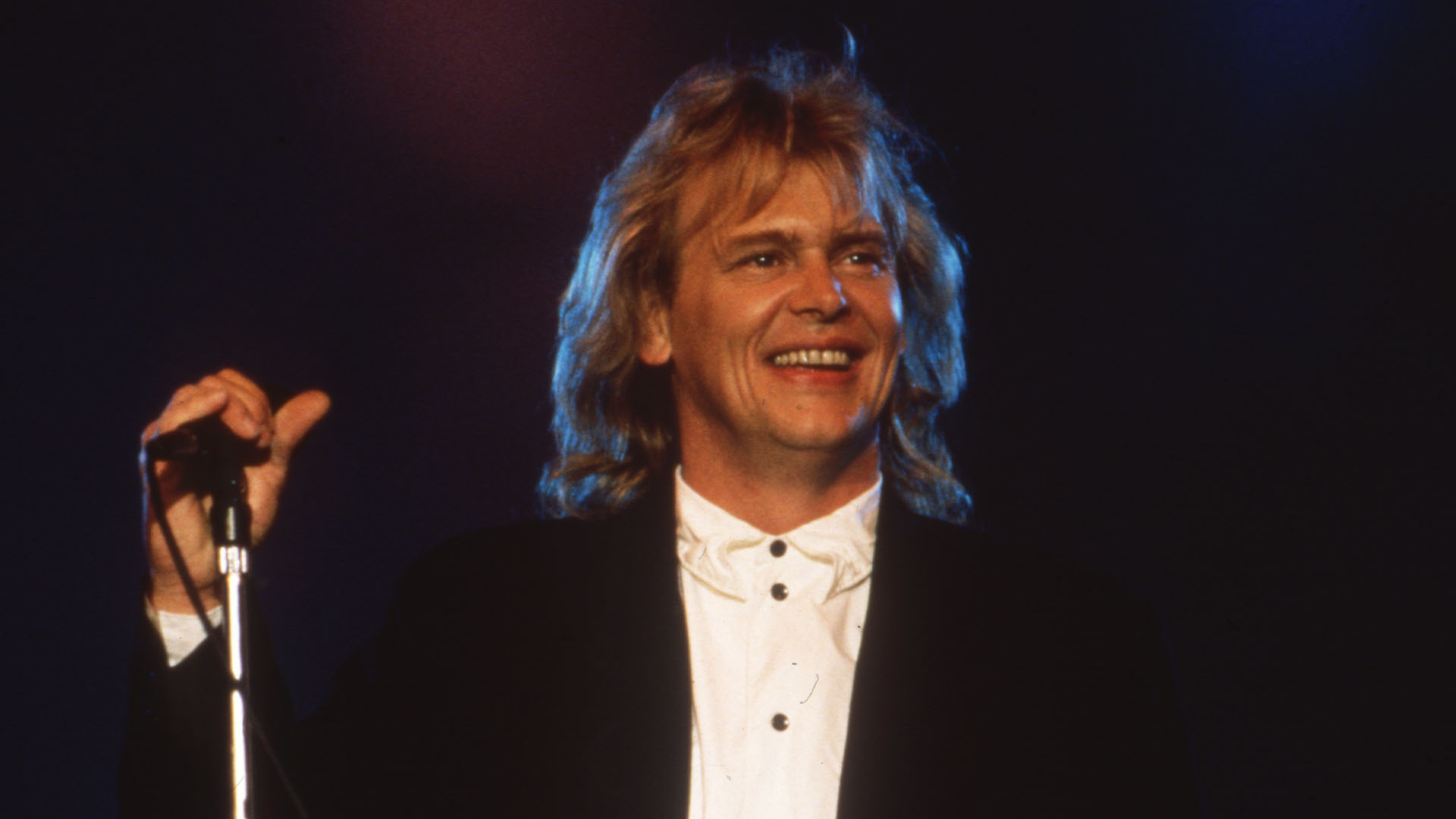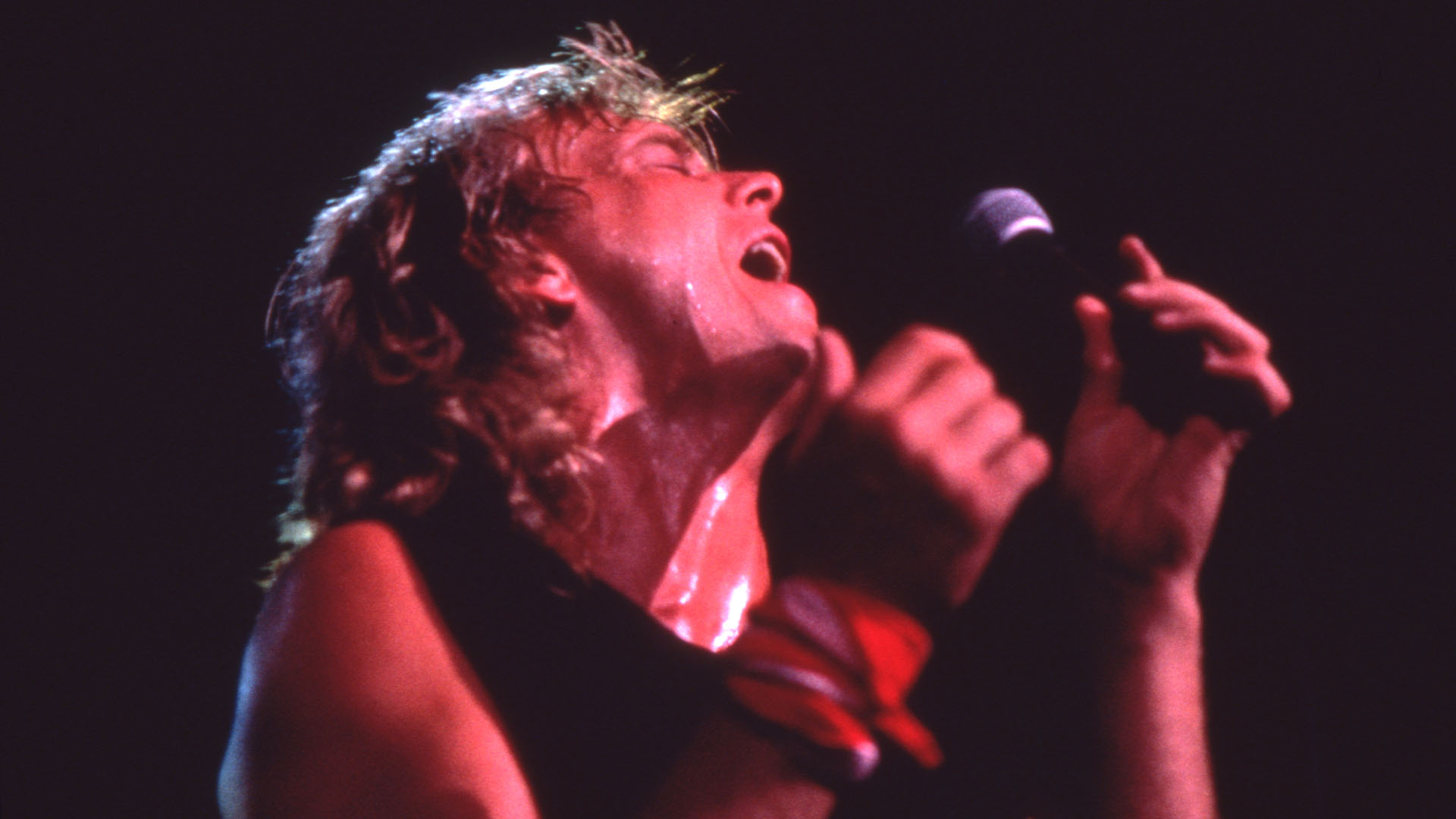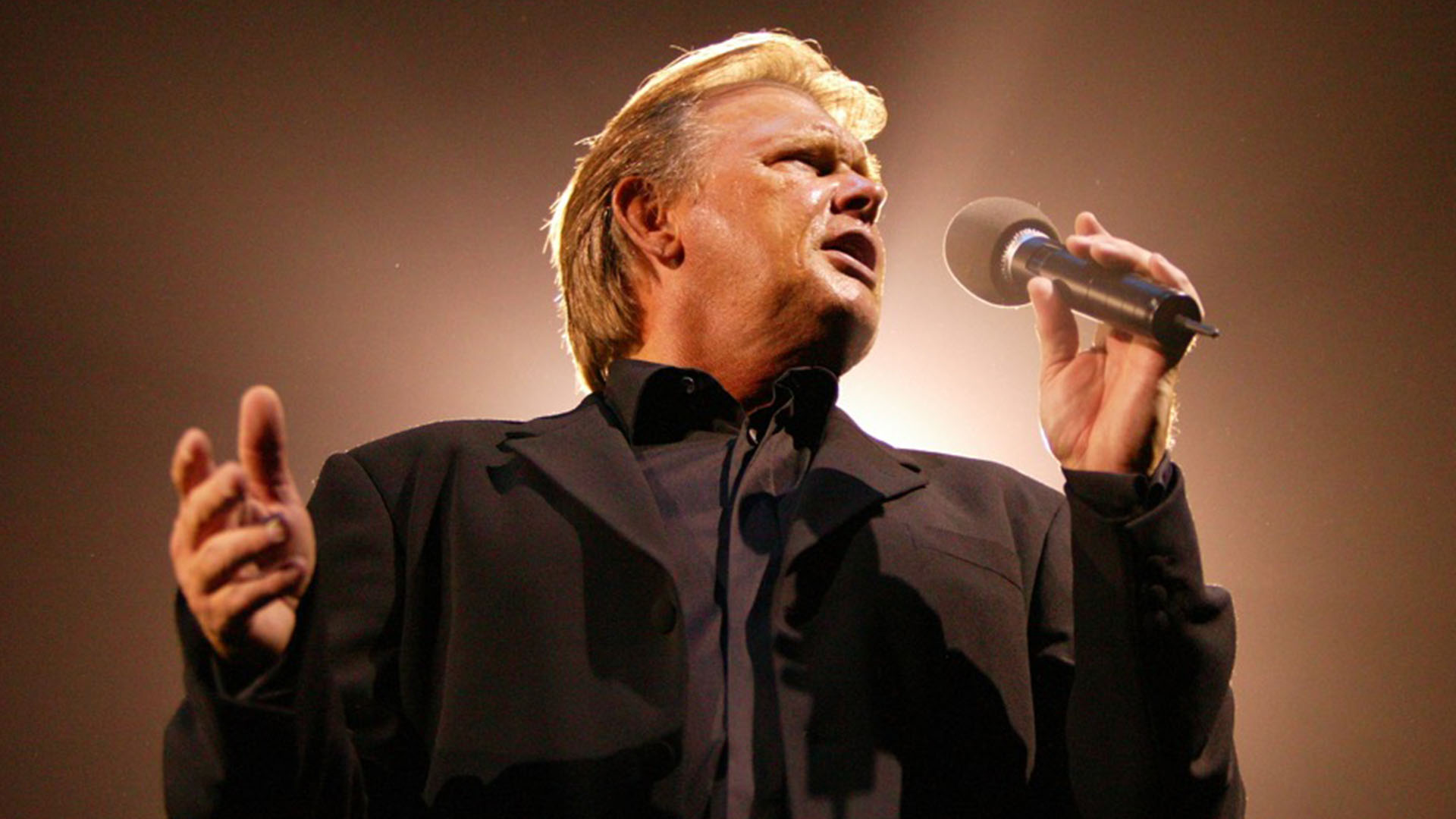We find out more about Finding the Voice from John Farnham doco’s director

John Farnham: Finding the Voice chronicles the life and long career of the singer who’s become known simply as ‘The Voice’. Director Poppy Stockell chats with Steve Newall about the film.
John Farnham: Finding the Voice
Finding fame in multiple decades, John Farnham is an indelible part of Australian culture. A deserved new feature doco tells Farnham’s remarkable life story, with repeated highs and lows until he conquered the charts in the 1980s. Awesome archive footage is accompanied by interviews with the likes of Jimmy Barnes, Celine Dion, Olivia Newton-John, Robbie Williams, Glenn Wheatley—and, of course, we hear from Farnham himself. Director Poppy Stockell joined Steve Newall on Zoom to tell us more.
FLICKS: What’s the earliest you can remember John Farnham, the cultural entity, being part of your life?
POPPY STOCKELL: Definitely Primary School. I was in year 5, and he won Australian of the Year 1988. I remember going on my friend’s grandparents boat on the harbour and everyone singing You’re the Voice. My sister coming home from school and singing. You’re the Voice. You know, it was such a part of the cultural landscape of the late 80s.
There’s a real journey, I think, through Australian culture in the film – as much as it is a story of John.
Yeah—kicking off with Sadie the Cleaning Lady. You know, it was an albatross around his neck. But I think it says a lot more about Australian society—we made it number one and the highest selling single of the decade. So I think throughout John’s life, he’s either in step or out of step with Australian culture, and that reflects back on us in lots of ways.
I really felt for John through some of the cultural shifts seen in the film, Australia and New Zealand inspired by the culture of the 60s and 70s, but a couple of steps behind the rest of the world. That must have made things all the more difficult for him.
Darryl Sambell [Farnham’s manager from 1967-1976], he had a very particular idea about what John should and shouldn’t be. And the times changed, and Darryl was out of step—he was resolute and firm in his belief that John should be a certain way, you know, be able to follow the spotlight in a leagues club. And it was ultimately to John’s detriment.
Throughout John’s story, there are always obstacles in his way but he seems relentlessly positive. Which kind of sets him apart from many other battling cultural figures in a way – he’s just so likeable.
I think it sort of puts him apart from most other rock stars in a way too, in that he’s a genuinely pretty nice, sometimes naive guy. He came from a loving family and was a lovely kid. He was picked on a little bit, so was a bit sensitive, a bit out of step with Australian culture. He was an immigrant, he was a Ten Pound Pom, but he wasn’t like Jimmy Barnes over in Elizabeth with a whole lot of other immigrants.
Weirdly, Farnham’s family won the lotto when they arrived in Australia, so they could buy a middle class house and have that existence. But he was always a bit on the outer, I think. And I think that gave him a compassion and an empathy that perhaps sets him apart. A lot of the best musicians are great interpreters of human emotion, but I think John is just up there with that ability—which is what I discovered, you know?

There’s some pretty incredible archive material available seen in the film.
Well, beautifully, his life has been very well documented, which is just such a joy for filmmakers like me. It was rare, I think, in those days for families to have film cameras, but the early stuff of John, that’s on film, and then the advent of television, you know, him being on TV in the 60s. And then yeah, in the 70s it hits colour. It was fantastic.
For me, no conversation about about Farnham could avoid reflecting on incredible. 80s mullet, it’s probably my earliest memory of the guy! Boy, you must have seen some fashions come and go through putting this film together.
Oh, totally. And for a while there, I was like, “Could I rock a mullet? No.” There’s also the sort of bowl cut when he’s in Little River Band. And then that’s just grown out really quickly to usher in the new era of music.There’s a quote of him in the film saying ”I don’t have an image. I’m not trying to portray an image. It’s just me.” Yeah, he definitely needed some help there.
Little River Band is one of the chapters in this film where it feels there’s enough in there to be a film of its own.
I guess with filmmaking, you’ve got to just be so focused on what’s in the lane. You know, if it’s a bit too off the lane, it detracts from the story. I mean, the LRB stuff, as you say, there is a film there. But you’d have to be one brave soul to go in there.
He’s really encountered some characters.
He sure has. And he’s such an innocent. It sounds patronising to call him naive, but that’s his beauty as well, you know. It’s a trope, that artists are these rare flowers, but he’s a pretty special human being. In being so controlled in the darker side of the story with Darryl, you know, he could have been an Elvis, he could have had that ending. I think it’s a real testament to Jill Farnham—she was tough. And she stood up to Darryl, and she backed him. She was a constant through his life.
I guess in the Antipodes we look at our musical or cultural heroes and wonder how they would have gone if they were from the UK or US. But maybe what John what he was able to give to the culture here, the culture in Australia, was far greater because he didn’t have a home in LA that a Vegas residency had paid for. He had to keep fighting to maintain his position, and the mega-success of Whispering Jack perhaps couldn’t have happened without the struggles along the way.
I think you’re absolutely right. I think Whispering Jack wouldn’t have happened without him being so squeezed to the point of either complete defeat or to throw the gloves off and absolutely go in there swinging. And, choosing the people that he wanted to collaborate with: David Hirschfelder, genius; Ross Fraser a calm, considered, giving, gentle human being, and then trusted old friend Glenn.
Looking back a bit, I don’t think he actually wanted to make it in America. Apparently after the years of touring with LRB across that huge, huge country, he said to Glenn “I’m done, don’t make me have a hit there, because I’m not going to be pushing it. I don’t want to do that, don’t want to live on a bus.” I think those years were so hard. And also forged him, you know? It was part of the pressure cooker, to make him be able to play when the time came. When he broke records playing stadiums, he could do it because of his training in LRB.
It’s really awesome, as a documentary maker, to sort of plot someone’s life out—crudely, obviously not to the detail that life is—but plotting out the major turning points and then you’re really following a yellow brick road. “Of course, that led to that. And if this didn’t happen, that wouldn’t happen.” And with all the characters coming in and out again, you know, circling back. It happened even more than we put in the film, you know, Beeb in LRB played on Sadie, was one of the band members, all those years ago. There are so many beautiful, interconnected things—surely it’s more than coincidence, you know?

One of the sadder elements of the film is the shadow of current events that it’s been made and released under – with John’s much-documented health struggles. How did that affect the filmmaking process for you?
He hadn’t been diagnosed with cancer. John was taking refuge up in Cairns—in Port Douglas. His mum died of emphysema, so he was really terrified of getting COVID. And so we knew that there was some fragility in health with John, but no one knew that he had cancer. He didn’t know he had cancer—it was just picked up by a dentist.
So yeah, there’s been some pretty sad moments, some hard knocks of life. I’ve found, as a documentary maker, when you start to make a documentary, any one that’s vaguely longitudinal—life happens. You know, life is always happening. But when you put a lens on a particular life, or lives, it seems to unfold. And that’s what happened here, as well.
Has that changed your film or sense of responsibility to John?
Well, it was a pretty huge responsibility telling John’s story, I really did not want to fuck it up. So many Australians have such a huge love and admiration—John’s music is a part of, if not all of our lives, you know, almost all of our lives. So there was a responsibility to really deliver on that. You know, at no part was this film about me, or showing off my artistic flair or skill as a filmmaker. I was just always saying to myself, “just kick it straight through the goal.”
I think I was the last person to interview Olivia Newton-John. And the last person that interviewed Glenn Wheatley. Then there was getting John’s interview via Gaynor, and interviewing Jill, who’s very rare in giving interviews, and not shying away from the truth of where he’s at. Where the story’s at—it did change the ending. And I think leaning into that truth makes it more powerful, you know, the fragility of human life, it’s over so quickly. That’s the other thing you realise when you’re making films of people—biopics, especially. Yeah. We’re gone, we’re gone in a snap. So it’s important to celebrate that and not gloss over, you know, the reality of the situation.



















